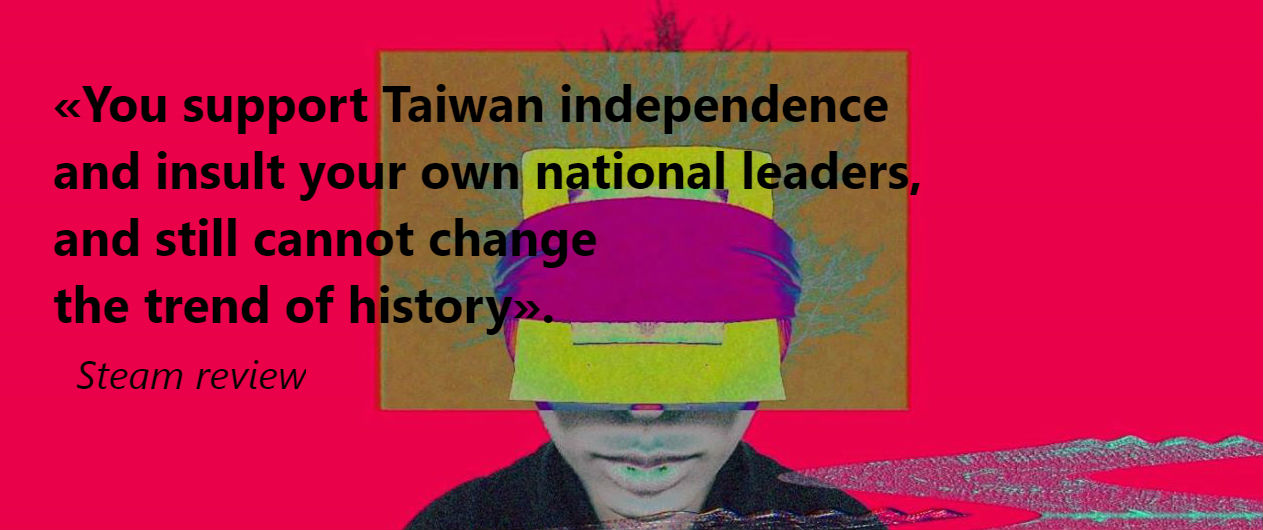Horror Devotion removed from Steam - again the cause of Winnie the Pooh, Xi Jinping and China's anger over political overtones

On February 19, the Taiwanese horror Devotion , a family drama mixed with local mythology and religious cultism, was released on Steam . This is a game in the spirit of “walking simulators”, where the main mechanics is a slow and attentive exploration of the world in the first person and without much action. In Devotion, the world is an empty apartment building in Taiwan, in the 80s, where the protagonist wanders through temporary loops, watching the constant change of environment.
Immediately after the release, Devotion became a hit on Twitch, got into the top sales, instantly scored 95% of positive reviews on Steam and collected a very good press.
A week later, the game was removed from the store, all its discussions were banned on Chinese gaming forums, and the authors removed all videos about it from the Youtube channel. Despite this, there is still a scandal surrounding the game, which began with ridiculous memes, went into national and political conflicts and can now threaten Valve's plans in China.
On February 21, players noticed a poster in the game, the so-called " Fulu ", a written type of amulet in Asian religions, which is also used to expel evil spirits. Chinese players read there the inscription "Xi Jinping, Winnie the Pooh, moron." Even if there wasn’t the last word on the poster, in China this is enough to ban the game.
The similarity of the PRC chairman with the Disney teddy bear has long been a meme to which the government is very sensitive. If you search for a Chinese Weibo twitter to drive “winnie the pooh”, it will produce the result “content is illegal”. WeChat messenger blocks pictures and gifs with a character. Last year, China even refused to rent the film "Christopher Robin."
However, in the first place, the game did not provoke a reaction from the authorities, but the anger of the players. The Devotion page on Steam was filled with bad reviews and complaints about insults. The players began to look for more messages in the game - and find. Some were frankly sucked from the finger, some were fakes, but the negative excitement grew exponentially.
For example, players found a newspaper in the game with the text, "Baozi was arrested and sentenced to death for attacking a student." Bao Tzu is a Chinese dish, a pie, but as it turned out, it’s also another nickname of Xi Jinping. In the end, the players blamed the authors for calling the chairman a pedophile.
By that time, the game had already drowned in negative reviews, mainly from Chinese players, and all its discussions on Chinese forums were blocked. Some users not from China, not understanding why they react so much to jokes about Jinping, began to think that all these are bots and paid commentators. But anger had a second bottom.
The name of the main villain of the game, a religious cultist, allegedly in tune with the Chinese words "Homeland" and "People." According to the plot, on October 1, he arranges a sacrifice, where one of the important characters at the age of 49 dies. The players brought it all up with red strings on the wall and concluded: October 1, 1949 is the Independence Day of the PRC. This date is associated with the victory of the Communist Party in the Civil War over the Kuomintang. The losing leaders - and with them another 2 million citizens - fled to Taiwan and separated from the PRC. The independence of the island is still one of the most pressing political issues in the region.
Now that the Taiwanese developer has left the political Easter eggs in the game, the Chinese players felt that they were imposing an ideology and propagating calls for Taiwan independence.
On February 23, Red Candle Games, a horror development studio, published a huge apology letter . According to them, during the development, one of the employees simply took a picture from the Internet and put it as a stub. The remaining developers were busy with their duties, and did not notice the inscriptions. As a result, the poster hit the release version by accident, by oversight.
Then three more paragraphs of apologies and assurances that there is no political statement in the game and no intention to offend anyone. They wrote that the Chinese publisher was also not aware of the problem and had nothing to do with it. Nevertheless, the contract has already been terminated, and money will be returned to all comers.
An update that removed the scandalous poster was released that day. But since many players in China downloaded pirated versions, the build with words about Jinping continued to spread. On the same day, the game became unavailable on Steam in China.
On February 25, the game was completely removed from Steam , so everyone who bought it had to return the money. Red Candle Games urged not to respond to speculation and only monitor official posts, but the studio’s channel on Weibo is now also blocked.
Like many IT companies, Valve values the Chinese market, despite everything that happens there. Now the company is working on a localized version of Steam for the country in partnership with the local Perfect World studio, so that the service complies with the laws and realities of China. Could such a surge of negativity disrupt these plans? There will be nothing surprising.
